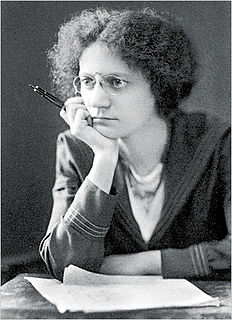A Quote by Siri Hustvedt
Our great cultural error is to assume that 'truth' arrives only through reductive theories.
Related Quotes
Error is a supposition that pleasure and pain, that intelligence, substance, life, are existent in matter. Error is neither Mind nor one of Mind's faculties. Error is the contradiction of Truth. Error is a belief without understanding. Error is unreal because untrue. It is that which stemma to be and is not. If error were true, its truth would be error, and we should have a self-evident absurdity -namely, erroneous truth. Thus we should continue to lose the standard of Truth.
It is too often believed that a person in his progress towards perfection passes from error to truth; that when he passes on from one thought to another, he must necessarily reject the first. But no error can lead to truth. The soul passing through its different stages goes from truth to truth, and each stage is true; it goes from lower truth to higher truth.
Again, men tell us that our preaching should be positive and not negative, that we can preach the truth without attacking error. But if we follow that advice we shall have to close our Bible and desert its teachings. The New Testament is a polemic book almost from beginning to end ... It is when men have felt compelled to take a stand against error that they have risen to the really great heights in the celebration of the truth
The nature of human beings never changes; it is immutable. The present generation of children and the present generation of young adults from the age of thirteen to eighteen is, therefore, no different from that of their great-great-grandparents. Political fads come and go; theories rise and fall; the scientific 'truth' of today becomes the discarded error of tomorrow.
'In his celebrated book, 'On Liberty', the English philosopher John Stuart Mill argued that silencing an opinion is "a peculiar evil." If the opinion is right, we are robbed of the "opportunity of exchanging error for truth"; and if it's wrong, we are deprived of a deeper understanding of the truth in its "collision with error." If we know only our own side of the argument, we hardly know even that: it becomes stale, soon learned by rote, untested, a pallid and lifeless truth.'
The world always makes the assumption that the exposure of an error is identical with the discovery of truth - that error and truth are simply opposite. They are nothing of the sort. What the world turns to, when it has been cured of one error, is usually simply another error, and maybe one worse than the first one.





































